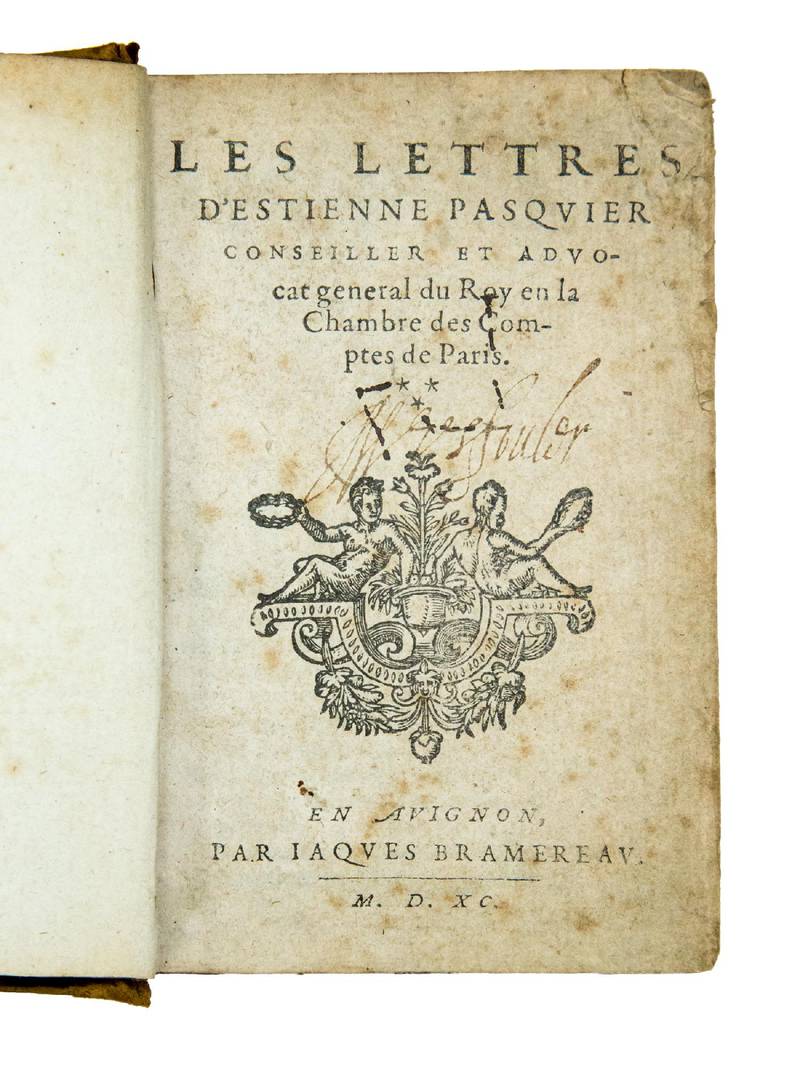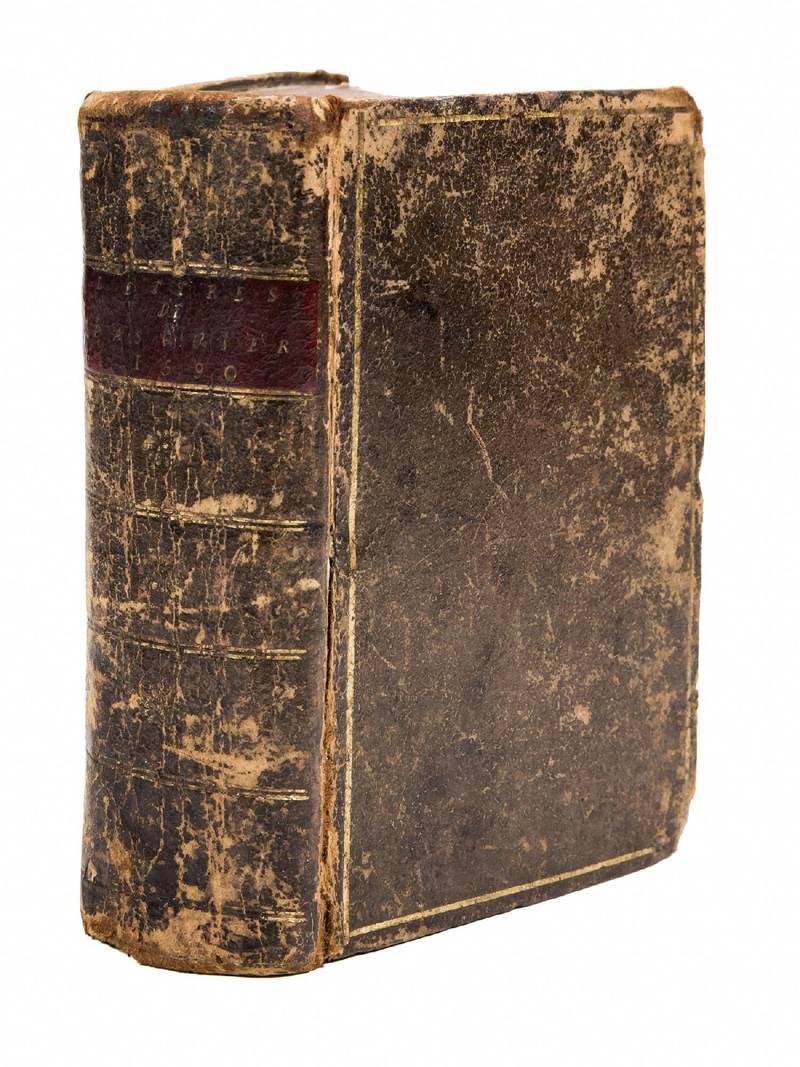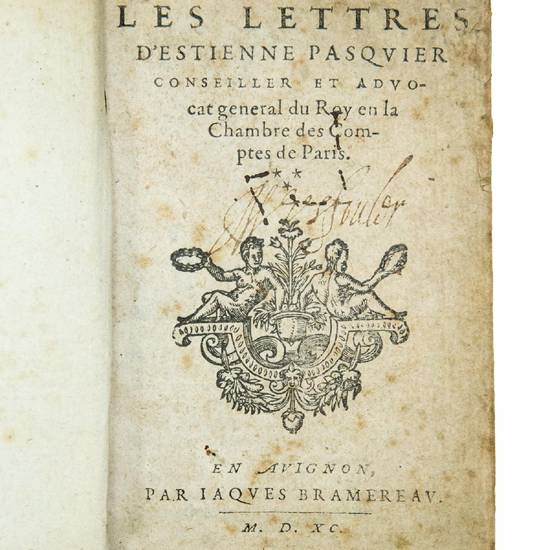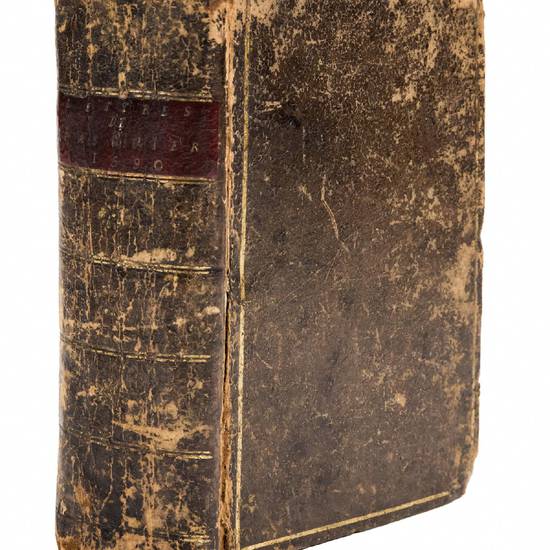16mo. (12), 438, (30) leaves. *8, **4, a-z8, A-Z8, Aa-Mm8, Nn4. Typographical ornament on title-page. Late seventeenth-century calf, red piece with gilt title on spine, red edges, marbled endpapers.
Adams, P-380; D. Thickett, Bibliographie des œuvres d'Etienne Pasquier, (Genève, 1956), p. 46, no. 20.
SECOND EDITION, a faithful reprint in a more handy size of the first edition in 10 books originally issued by Abel L'Angelier in Paris in 1586. Since the privilege printed at the end of the Paris edition has been omitted in the present one, this is probably a pirated edition.
After graduating from the renowned Collège de Presle in 1546, Étienne Pasquier studied with the greatest legal humanists of his day. From François Hotman, François Baudouin, Jacques Cujas, and Andrea Alciati, he acquired a profound sense of the reality of laws and institutions, which led him assert the importance of the French political and cultural inheritance over and against classical Roman and modern Italian models. His public career and private scholarship advanced apace.
In 1549 he was called to the Paris bar. In 1558 he became very ill through eating poisonous mushrooms, and did not recover fully for two years. This compelled him to occupy himself with literary work. In 1564 he represented the University of Paris in a famous lawsuit with the Jesuits, whom he portrayed as agents of Romanist tyranny seeking to undermine the liberties of the Gallican church. In 1585 he became advocate general of the Chambre des Comptes in Paris, one of the sovereign courts, and in 1588 he left the city as a deputy to the meeting of the Estates General at Blois.
A Politique and staunch opponent of the ultramontane Catholic League that just seized control of Paris, he did not return to his magistracy until Henry IV officially entered the city in 1594. During his absence from public life, he assembled a new six-book edition of his Recherches. He continued his work in the Chambre des Comptes until 1604 and then retired. He survived this retirement more than ten years, producing much literary work (cf. D. Thickett, Estienne Pasquier: The Versatile Barrister of Sixteenth-Century France, London, 1979, passim).
[9105]





